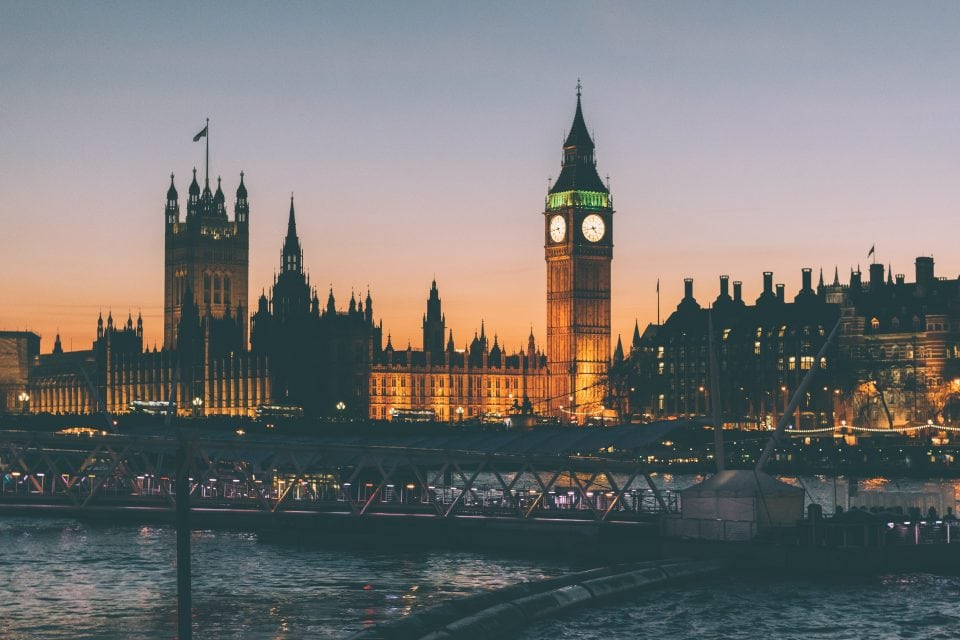Blog Post by Irina von Wiese, former LibDem MEP
London Calling is the European Liberal Forum’s column aimed at bridging the Channel.
One of my earlier blogs was entitled ‘A Tale of Two Cities’, published when the first comprehensive Covid-19 data pointed to a link between inequality and the spread of the pandemic. Seven months later, new statistics and analyses shed more light on the catastrophic outcome of the pandemic on the poorest Londoners. While many are focusing on the progress of the vaccination programme and the promising decrease in infection rates – undoubtedly a success story, so far – , we also need to revisit some worrying facts. The success of London’s resurrection as a thriving capital will depend on how local, regional and central governments address these issues.
Looking back at the past twelve months, the first thing to note is that London has been struck by three devastating blows: First, by a pandemic that has claimed more lives here than in most other European cities, then by three lockdowns and a number of other restrictions resulting in a 9.9 percent drop in UK economic output in 2020 – the worst economic crash in more than 300 years – and, simultaneously, by Brexit, damaging the financial sector London’s economy so vitally depends on.
While every Londoner was hit by this triple calamity in some way, there is no doubt that some were hit harder than others.
Between 21 March 2020 and 8 January 2021, more than eleven thousand people died of Covid in London alone. According to the UK Office for National Statistics (ONS), black people are almost twice as likely to die from Covid than white counterparts. Londoners of Bangladeshi and Pakistani origin are 1.7 times more likely to die than white people.
This comes as no surprise. In cities across the world, enduring and systemic racism has led to a link between ethnic and social divisions. Across the whole of England, Black and Pakistani people are more likely to live in the 10 percent of neighbourhoods most deprived in relation to their living environment. In addition, Pakistani and Bangladeshi people are over three times more likely than white British people to live in the most deprived 10 percent of neighbourhoods.
Poverty, in turn, is linked to a poorly planned urban environment, such as high levels of environmental pollutants, inadequate housing infrastructure, and inadequate access to recreational and green spaces, good quality food and health resources. Even before the pandemic, people living in low income households in the UK were two to three times more likely to develop mental health problems. Compounded by the impact of lockdown and symptoms of ‘long Covid’ – likely to include mental ill health – , the risk is multiplied.
None of this is a specifically British phenomenon: poverty is a health risk, wherever you live. But London, with sky-high housing and transport costs and a huge income gap, reflects this sad truth more clearly than other places. So-called ‘key workers’, celebrated as heroes in the fight against Covid, are among the worst affected: underpaid teachers, nurses and bus drivers are facing the double jeopardy of inadequate living standards and greater exposure to the virus. More hidden from view, London’s thousands of unregistered refugees and migrants, many of whom shun health services, Covid tests and vaccination centres for fear of deportation. Their number is not known.
No less shamefully, disabled people were also found to be at greater risk of death involving COVID-19 than non-disabled people, even after accounting for personal and household characteristics. In a publication dated 11 February 2021, the ONS revealed that six out of ten people who died with Covid-19 in the UK were disabled. There may not be an obvious link to poverty, but this shocking statistic shows that again, the government has failed to protect its most vulnerable citizens.
Now, as we slowly inch towards the end of the pandemic, it is time to rethink post-Brexit, post-Covid Britain. The first step has been made: the UK Health Foundation has launched a UK-wide inquiry to consider the pandemic’s implications for health inequalities. But the proof of the pudding will be in the eating: Can we rebuild London, and the country as a whole, in a more inclusive, more equitable way? Can we learn from other cities in Europe and across the globe?
Looking at a range of equality indices, including income, gender, inclusion and political representation, it is little surprising that Copenhagen, Helsinki and Stockholm top most lists of European cities. Despite very different ways of handling the pandemic, all three cities had relatively good outcomes in terms of economic and health impact. By contrast, London – featuring on rank No. 32 of 33 in one of the indices, did badly on both fronts.
To overcome the pandemic, it won’t suffice to restore London’s economy and infrastructure to the status quo ante. It won’t suffice to vaccinate all its residents and develop new vaccines against new strains of the virus. It won’t suffice to compensate restaurants and theatres for lost income and send children back to school. This is an opportunity to construct a better, more inclusive, more equitable London – a city where refugees are protected, disabled citizens enabled and the unemployed adequately supported. A city where every child has access to a decent home, clean air, a good education and nutritious food.
The United Kingdom rightly prides itself in having vaccinated more of its citizens against Covid-19 than any other European country. What we need now is a vaccination against inequality.
